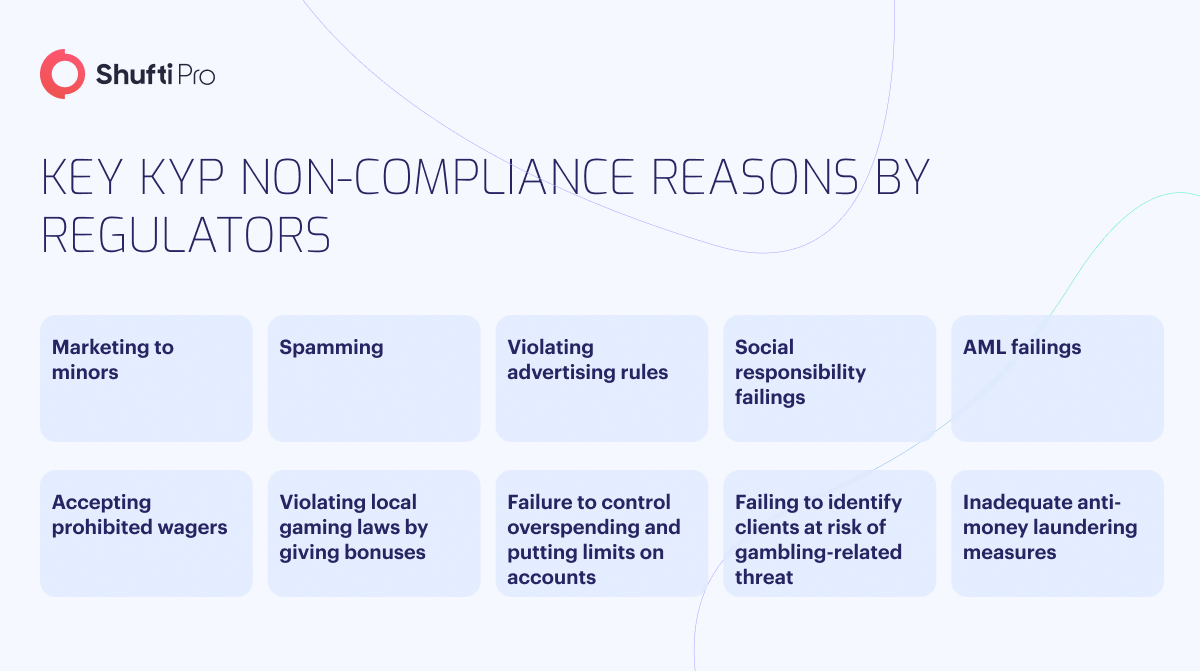Know Your Player | Onboard Verified Gamers and Scale Globally

- 01 A Brief History of Games - From Arcades to Digital Gaming
- 02 Challenges Faced in Online Gaming
- 03 What is Gaming ID Verification?
- 04 How Gamer Identity Verification Eliminates Player Risks
- 05 How Digital KYC Overcomes Player Fatigue Over Account Signups
- 06 Overcoming Know Your Player challenges with Shufti
In today’s digitised gaming world, player verification stands as a cornerstone for onboarding legitimate gamers, ensuring security, and meeting Know Your Player compliance. Considering the sector’s explosive growth, from a market value of $61 billion (US dollars) in 2021, the global gaming industry is expected to soar to $114 billion by 2028 – representing a rise of more than 86%. The numbers are notable and highlight the immense potential of the industry in terms of profitability, yet a major concern as the gaming sector is among the top most targeted by fraudsters. Despite the increase in profits, the gaming platforms experience millions of dollars in financial losses due to non-compliance or onboarding of illegitimate gamers.
For gaming service providers, player verification is crucial – it’s all about identifying the true identities, creating a secure digital environment, meeting regulations,, and driving trust among online communities.
A Brief History of Games – From Arcades to Digital Gaming
The gaming sector emerged with arcade games in 1971. Computer Space was the first arcade game, created by Nolan Bushnell and Ted Dabney, the founders of Atari, Inc. With time, coin-operated, skill-based games started getting installed in restaurants and amusement arcades. However, until console games were introduced, arcade gaming was all the rage. Console gaming gave more freedom to creators, which started a new era of gaming. What made the gaming industry so big? The advent of the internet and technology drove the sector’s success. Taking the lead, Microsoft created a subscription platform that exposed gamers to multiplayer gaming services and the ability to communicate with online players worldwide. Later on, personal computers also topped up with the specifications to support Massive Multiplayer Online (MMO), resulting in the favour of a game called World of Warcraft, which had 12 million active players at its peak. After the emergence of app stores, the games also became available on smartphones. As the number of mobile phones increased, the gaming industry gained more than half of its revenue through mobile gaming, which touched the market value of $85 billion in 2020.
Since 1971, the global gaming industry has evolved manifolds and has also undergone significant transformations in the past five years. As the sector grows, so do its challenges, especially concerning fraud prevention and ensuring a secure digital gaming landscape. This is where know your player KYP verification solutions have emerged as a savior for the online gaming sector.
Challenges Faced in Online Gaming
Digital and video games hold the power to gain the attention of players of all age groups. However, it may look commendable, but there lies an array of serious problems and consequences, like minor exploitation, accessing services using fake IDs, or availing of age-restricted content without authorisation. These concerns are significantly attached to underage users, which should be appropriately handled.
Criminal activities such as account takeovers, identity theft, AML/CFT, payment fraud, phishing attacks, etc, have been occurring frequently, disrupting the flow of gaming operations. With the technological advancements, fraudsters are using more sophisticated techniques to defraud individuals as well as the online platform, including:
- Identity Fraud: Among other kinds of gaming scams, identity theft is the most commonly and widely occurring problem. Under this scheme, criminals create multiple gaming accounts using legitimate identities that are stolen from the victims. This impacts both the businesses as well as the victims whose identities have been robbed.
- Payment Fraud: The gaming industry is struggling to eliminate the risk of financial crimes. One of them is payment fraud, which is carried out using stolen credit cards or using other illicit ways to purchase in-game add-ons along with withdrawing winnings illegally.
Account Takeovers: In such scenarios, cybercriminals gain access to gamers’ accounts through malware or phishing attacks, stealing personally identifiable information along with financial data whilst locking out legitimate owners.

Money Laundering via Microtransactions and Anonymous Payment
Over the last decade, microtransactions have become pervasive with the increase in the popularity of online multiplayer games. Microtransactions include selling and buying gold or other in-game virtual goods through which criminals wash their illicit gains. These value-adding items unlock parts or features of the game that would require hours and multiple levels to unlock otherwise, which has resulted in the creation of multiple online stores for such in-game items. With an intent to increase the sales and the popularity of such marketplaces, service providers are now offering “gold” within games, but this move has paved an easy way for criminals to carry out money laundering activities.
What is Gaming ID Verification?
Online gaming verification of a player is a crucial process where online businesses authenticate the gamers’ identities before getting them onboard. This is an essential step that not only fulfills regulatory obligations but also fosters a secure, transparent, and risk-free gaming ecosystem.
Generally, ID verification in the gaming sector goes beyond compliance, it’s more about developing a secure, fraud-free platform where gamers from different countries can engage safely. This process involves gathering and verifying players’ information including documents as proof of identity to ensure legitimate user onboarding.
How Gamer Identity Verification Eliminates Player Risks
As per the European Commission’s Radicalisation Awareness Network latest report, steam and PSN, among other online gaming platforms may serve as “hotbeds for radicalization.” However, due to the increased scrutiny and more strict regulations in the financial industry, it’s been harder for fraudsters to launder money, therefore, organised crime groups started looking out for easy targets which are not regulated at large or have loopholes in their compliance systems.
Therefore, criminals intend to target online gaming platforms and video game payment systems. These targets lack ID verification regulations, and using cryptocurrencies for in-game items, both convertible and nonconvertible, has proven to be an easy source of laundering illicit gains. One such example is Fortnite, an online multiple game which is frequently used for money laundering activities and carding, a kind of credit card fraud in which criminals utilise stolen bank cards to buy in-game add-ons or charge prepaid cards.
How Digital KYC Overcomes Player Fatigue Over Account Signups
From a player’s end, creating an account or signing up process is perceived as a hassle that negatively impacts the gaming experience. However automated Know Your Player verification solutions have the power to make the players’ onboarding and authentication procedures seamless, transparent, and hassle-free whilst enhancing the gaming experience.
On the gaming platform side, know your player KYP verification helps to identify illegitimate users by screening them against crime watchlists, ensuring a transparent and risk-free online gaming community. Furthermore, KYC verification solutions also develop age authentication checks, which are essential in restricting minors from manipulating platforms’ security measures. If anti-money laundering screening is implemented, having the above-quoted fraud preventive measures would help video gaming service providers remain one step ahead of money launderers and financial criminals.
The next step is building trust among global gaming communities, which in fact, could happen using KYC and AML checks. Fool-proof verification using AI-powered player verification solutions will ensure only verified players are being onboarded and accounts are secured from phishing attacks, which in fact eliminate the risk of cyberbullying, fraud, harassment, and abuse. As gamers will be able to verify their identities swiftly, it can also help them recover their accounts following a takeover.
Overcoming Know Your Player challenges with Shufti
Today’s global gaming industry is now obligated to ever-evolving know-your-customer, kyc screening, and counter-terrorist financing regulations. However, grey or unregulated businesses pose complex and costly issues for service providers. To meet regulatory obligations and fight fraud whilst providing a state-of-the-art and hassle-free gaming experience, gaming platforms must include age verification, suspicious activity reporting, KYC checks, and other preventive measures.
Shufti, a globally trusted IDV service provider, offers innovative, fool-proof,, and fully automated KYC solutions tailored to the gaming industry across 240+ countries and territories. Our solutions can process 10,000+ ID document types in more than 150 languages and help businesses meet compliance obligations wherever they are from. The Company offers real-time verification results with 99+%, reducing onboarding time whilst increasing transparency across operations and enhancing customer experience.
Want to learn more about how Shufti can help the Gaming Industry in the fight against crimes?











